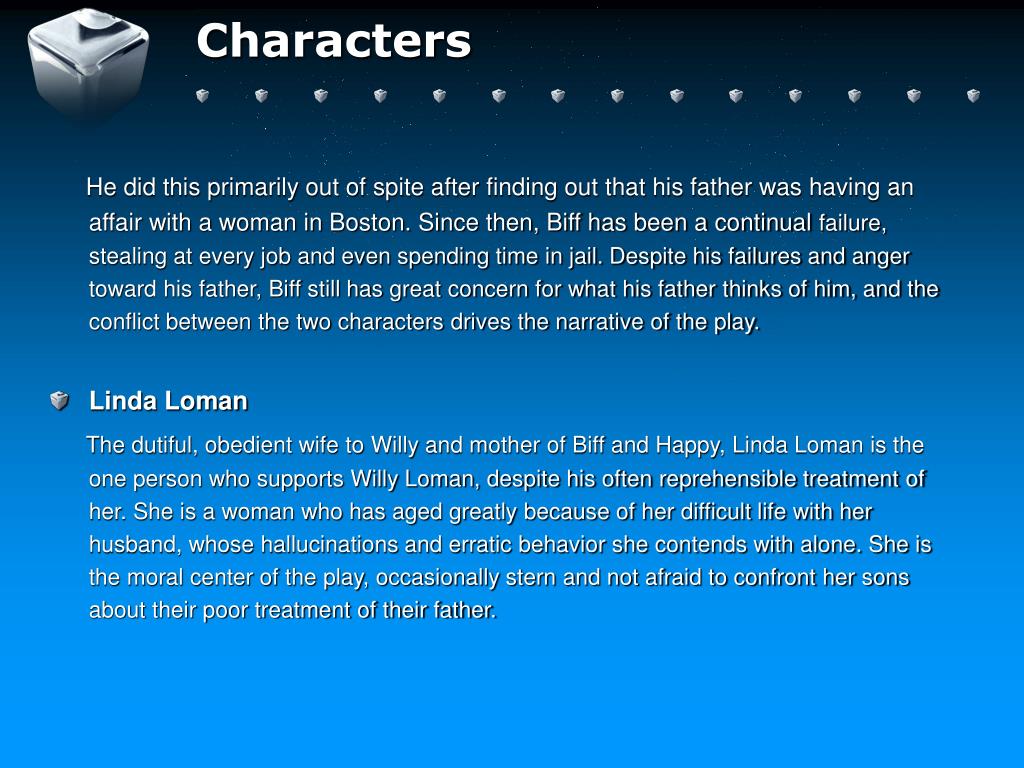
Rather than encouraging Willy to be successful like his father, he is stating that he is not capable. Although it is clear that Willy feels a sense of pride for his father when Ben boasts this, it is important to note that his brother is also insulting him. Ben describes his father as a “Great inventor… With one gadget he made more in a week than a man like could make in a lifetime.” (Miller, 2347). The only times his father is present is during conversations with his brother Ben. His father’s flute playing is one of the few sensory memories that Willy has of him (Witalec, 148). Whenever Willy is experiencing a flashback, Miller represents his father’s memory through a flute playing offstage. Though Willy’s father is rarely mentioned, there is a sense that his memory is always present. Willy’s father is the least represented in the play because his father abandons him at a very early age. These men represent who he wants to emulate. He creates his view of success based on three men that he idolizes: his father, his older brother Ben, and old Dave Singleman. It is, as Witalec says, “his vision of success perpetuates crippling feelings of inferiority and inadequacy … drive him to destroy himself” (Witalec, 236). His most significant insecurity is that he is never as successful as he feels he should be. Ironically, what makes Willy feel like a successful salesman causes him to feel insecurities regarding his fatherhood and other aspects of his life as well. The affair results in a strained relationship with his son, and though Biff never tells the secret, the family dynamic is forever changed. Indeed, according to the flashbacks within the play, the young Biff and Happy had nearly idolized Willy, so this betrayal, while Biff is yet an adolescent, is particularly poignant.” (Marowski). In a criticism written by Marowski and colleagues, it expresses this betrayal by declaring that, “the trust Biff had given Willy now seems misplaced. In this, Lynda is the real victim, because she would have rather have her husband than own the home. When Willy makes this statement, he is speaking with bitterness over the years he had to work, and the times he missed out on with his sons, whereas Lynda says this with sadness because now that she officially owns her house, she is entirely alone. His wife reiterates this statement later, although she says it with a different tone. Now that he has gained it, his children are adults and are no longer running around the house. Here he realizes that he has worked very hard to get the material things he has in life.

You finally own it, and there’s nobody to live in it” (Miller, 2330). For instance, as his wife tells him that they almost have the house paid off, he states, “…work a lifetime to pay off a house. In Willy’s fractured mind, there are fragments of truths where he realizes the importance of family over money.


 0 kommentar(er)
0 kommentar(er)
